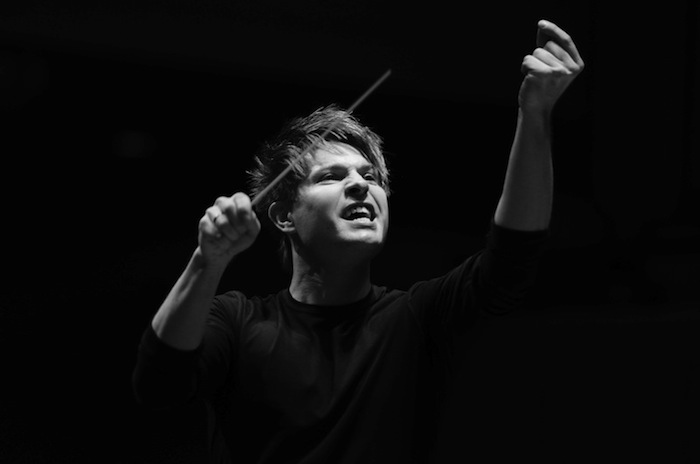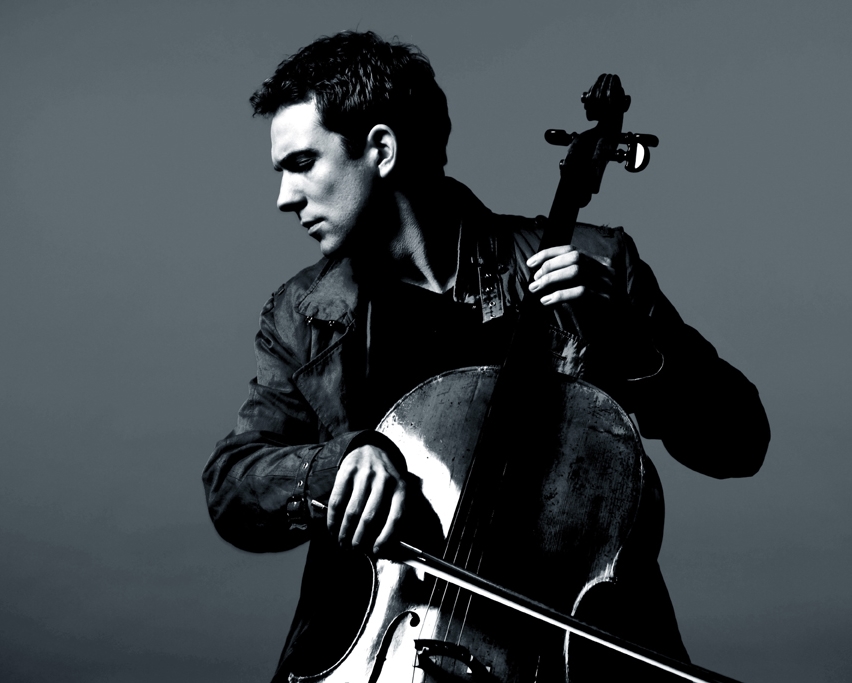Urbański leads NSO in Polish rarity and breathless Dvořák

Krzysztof Urbański conducted the National Symphony Orchestra Thursday night. Photo: Joanna Urbanska
Some American orchestras are trending younger and younger in their choice of conductor. The Indianapolis Symphony Orchestra appointed Krzysztof Urbański as its new music director in 2010, when the Polish conductor was just 28 years old. After appearances with the National Symphony Orchestra in 2013 and 2015, Urbański was back at the Kennedy Center Concert Hall on Thursday night.
He brought with him a new score for the NSO, Orawa, a dynamic piece for strings by Polish composer Wojciech Kilar. Known primarily for his film scores (The Pianist, The Portrait of a Lady, Death and the Maiden, among many others), Kilar also completed some symphonic works before his death in 2013. This overture-length work, written in 1986, opens with minimalistic repetitions for a few solo violins, in a Reich-inspired phase exercise.
Metric shifts unsettled the placement of the downbeat, at which the musicians did not always line up as they should. Part of the blame falls to Urbański, who seemed to mark large section breaks at first more than the running beat.
After a short time the piece exploded across the ensemble, giving all the players a workout. A chirpy cello solo for the high A string sounded fragile, while concertmaster Nurit Bar-Josef’s solos were more confident and rhythmically taut.
Kilar drew inspiration for the work from the natural vistas and mountain folk music of his natal land, the Carpathian region on the Polish-Slovak border. After nine to ten minutes of vigorous string-scrubbing, Kilar directs the musicians to shout a folksy “Hej” on the final beat, which here sounded more timid than hearty.

Johannes Moser
Two Romantic chestnuts made up the rest of the program. Johannes Moser had performed with the Baltimore Symphony Orchestra in 2013, but this was the German cellist’s NSO debut.
Tchaikovsky’s Variations on a Rococo Theme was Moser’s vehicle, but in the composer’s original version, another first for the NSO. Tchaikovsky had trouble knowing when to end this piece, making the unauthorized revision that is usually heard, shortened and reordered, more effective.
Urbański’s conducting often relies on theatrical gestures like his “Grab a fistful of dirt” cue, which is dramatic but does little to clarify the beat. The opening tempo was not communicated clearly, with Tchaikovsky’s theme failing to settle in place across the orchestra. Moser brought a brash tone to the solo part, but intonation wandered in the rolling triplets of the first variation, and he tended to rush, as in the upward runs of the second variation.
The cellists’s strength lay in caressing slow melodies, as in the fifth variation, while double-stops and other technical challenges were too often subpar. Most of the delicate arpeggiation upward into high harmonics, repeated to the point of parody by Tchaikovsky, was secure. Moser offered the Sarabande from Bach’s Fourth Solo Suite as an encore.
The main event was Dvořák’s Ninth Symphony (“From the New World”). One can usually tell how a conductor will do with this piece from the first 90 seconds of music. Rather than ponder this mysterious slow introduction to the first movement, Urbański plowed through it almost unceremoniously. That decision set the tone for a rather breathless performance in all four movements.
What may have been gained in excitement was lost in other ways. Urbański could not quite keep to the harried tempo with which he started the first movement. At the repeat of the exposition and other places as well, he kept pushing the beat back to where he wanted it. The second movement felt particularly rushed, a shame when the famous English horn melody was so beautifully rendered.
The Scherzo was crisp and focused. The brass sound was admirably heraldic in the Finale, but the climax of the work did not have the same impact with insufficient room to breathe in the earlier movements.
The program will be repeated 8 p.m. Saturday. kennedy-center.org/calendar/event/NRCSE; 202-467-4600.
